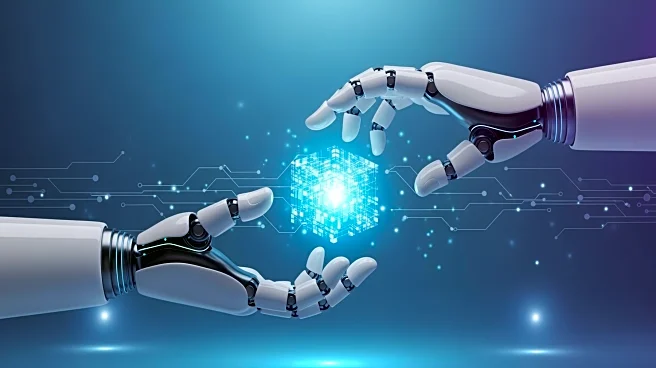What's Happening?
The retail industry is undergoing a transformation with the rise of bot-to-bot commerce, where AI agents negotiate purchases collectively. This new marketplace dynamic allows AI agents to aggregate consumer
demand and negotiate bulk discounts, bypassing traditional human-mediated commerce. The global AI agent market is expanding, enabling autonomous transactions that create economies of scale. Retailers must adapt their pricing strategies to accommodate algorithmic negotiations, as AI agents prioritize efficiency and data-driven decisions over traditional marketing appeals.
Why It's Important?
The shift to bot-to-bot commerce represents a significant change in retail, impacting how brands allocate marketing budgets and engage with consumers. AI agents can enhance shopping experiences by offering personalized services and negotiating better deals, potentially reshaping consumer loyalty. However, this transformation also poses risks, such as privacy concerns and the diminishing importance of brand building. Retailers must invest in AI-compatible infrastructure and data protection to remain competitive in this evolving landscape.
What's Next?
Retailers will need to optimize their systems for AI agents, focusing on data quality and algorithmic capabilities. As the bot economy grows, brands may need to redefine their value propositions, emphasizing technical performance over emotional appeal. Companies that fail to adapt may struggle to compete, particularly those relying on inefficiencies that AI agents aim to eliminate. The strategic imperative for retail executives is to act now, investing in the necessary infrastructure to thrive in the AI-driven future of commerce.










